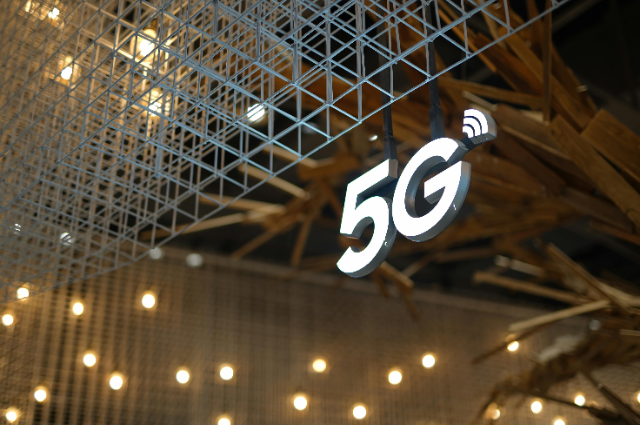
In today’s fast-moving society, technology is advancing at an increasing speed. 5G has changed the way we communicate, bringing faster connections and creating a lot of new opportunities. 5G has emerged as the 5th generation of mobile networks, and it commits to bringing fast internet services, updated connectivity, and new opportunities for business, healthcare, education, and entertainment. Unlike the past 4G networks, 5G networks can connect millions of devices at the same time, offer high-speed internet, and reduce delays in data delivery. This makes it not just a tool for faster scanning but a platform that can change the way society functions. 5G brings a lot of great benefits, but it also comes with its own set of challenges that need to be addressed thoughtfully.
What is 5G Technology? 5G is the latest advancement in mobile networks. It uses shortwave radio, advanced antennas, and technology upgrades like small cell networks and massive MIMO multiple inputs and multiple outputs to deliver faster and more reliable connectivity. One of the biggest things that sets 5G apart from 4G is speed. While 4G lets you download stuff pretty quickly—around 100 Mbps—5G can blow that away, reaching speeds of up to 10 Gbps, which is almost 100 times faster. Along with faster speeds, 5G also reduces delay, meaning data moves between devices more quickly. This feature is especially important for applications like remote-controlled surgery, self-driving cars, and online gaming stations, where every millisecond counts.
Benefits of 5G for the Society
One of the most announced benefits of 5G is having the fastest internet. With 5G, downloading movies, music, or large files will take only seconds, not more than a minute. Speeding up the internet helps video calls work more smoothly, which is important for things like working from home or taking online classes. Students can attend digital classes without disturbance, and professionals can hold meetings with colleagues in different parts of the world without any lag in the system.
Another important benefit is improved connectivity. 5G technology allows many devices to connect immediately without slowing down. The Internet of Things (IoT) connects day-to-day essential things that people use that we use daily—like cars, home appliances, and security cameras- to the internet, making this very important. In cities such as Mumbai, Bangalore, and Delhi, 5G helps manage traffic signals, detect air quality, and control the use of energy. By linking devices instantly, 5G can make cities safer, faster managing systems, and more organized.
Healthcare is another emerging part that can be changed by 5G. With low lag and high-speed connectivity, doctors can perform remote surgeries by using advanced techniques of tools. 5G allows hospitals to share large medical files, like MRI scans or X-rays, quickly and securely, improving the quality of treatment care.
In economics, 5G can provide or create job opportunities and business development. Industries like automated vehicles, digital reality, gaming, and management will benefit from faster speeds and stronger connections. Businesses can also use 5G to improve efficiency, reduce overhead costs, and develop more innovative sectors.
In education, thanks to 5G, learning is becoming way more interactive, giving students the chance to dive into hands-on experiences like never before. "Students can participate in a creative environment, in which they can explore educational content in real-time, and connect to a wide range of online resources without restrictions."
Challenges of 5G for the Society
Despite its many advantages, 5G brings certain challenges. One of the main issues is the high price of realization. Building 5G networks requires big investments in infrastructure, including small cell sites and lightwave cables. Many developing countries may struggle to buy or afford these costlier parts, which could limit access for some people and may not appear in those cities.
Another challenge is health issues, where some individuals worry more about the potential effects of shortwave radio signals on human health. While scientific studies say that it is not confirmed that it significantly harms health. But the public remains alert. Continuous research and clear safety guidelines are necessary to address these concerns and ensure people are to have confidence.
Cybersecurity is also a major issue. 5G will connect millions of devices, from smartphones to smart cars. This increases the risk of cybersecurity threats, scams, and hacking data. Emotional information that is sensitive, such as personal data or even critical infrastructure systems, can be at risk if it is not properly under security measures, and government companies must be protected against cybersecurity threats to help users and society as a whole.
The digital imbalance in performance is another challenge. While modern cities and urban areas are likely to receive 5G networks first, rural areas and remote regions may continue to depend on slower networks. This could increase access to information, education, healthcare, entertainment, and economic opportunities. Struggle is needed to access and to ensure that 5G benefits everyone, not just those living in developed areas.
5G technology is the potential seeker to invent more positive changes in the world. It offers faster internet, upgraded connectivity, and advanced healthcare techniques and equipment. Meanwhile, it comes with challenges, including higher prices, health issues, cybersecurity risks, the digital pathway, and environmental effects. To get more benefits from 5G, governments, businesses, and individuals should work together.
